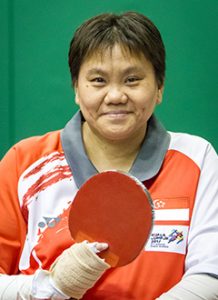A different outlook on the disabled and a ‘normal life
Take a moment to think about who you are and where you belong. Then ask yourself, “When was the last time I felt left out?”
For some people, this feeling may be more recent than you would think.
Like many ideas around the world, a person’s influences and experiences will alter their perspectives. And with the current endeavor for human acceptance on virtually all levels, the sense of what is ‘normal’ and whether a disabled person is ‘normal’ is a controversial topic that often sparks heated arguments.
But each person, whether conscious or subconscious, has a sense of what they believe is ‘normal’.
Yet this is not a bad thing, the acceptance of others and the belief of what is ‘normal’ do not have to clash. By recognizing that someone is different and may not be what you are used to is part of why accepting others is so important.
It is argued that, on a psychological level, prejudices are in fact a part of human thinking.
Caused by the situation that a person grows up in and lives in, the slightest prejudices are bound to form as a result of the norm within their social group.
However, norms within a social group are malleable. So are a person’s prejudices malleable as well? The answer depends on the person.
Christian Crandall, a psychology professor at the University of Kansas, says that “to be a good group member, one must adopt the prejudices that the group holds and abstain from those prejudices that the group frowns upon.”
So if someone were to join a new group of people, would their prejudices change? In most cases is not a question of if, but when.
Christina Lau, a paralyzed mouth and foot painter, was not born disabled. On April 2, 2005, she was spending her time in Malaysia, heavy rain on the roads caused her car to skid and lose control, resulting in an accident that paralyzed her from the waist down and damaged her fingers to the point where they are virtually useless.
Source: https://www.myactivesg.com/team-singapore/athletes/l/christina-lau-lay-lian
(“I felt like I was a burden to my family” – Christina Lau)
But before the accident, she was a prison officer, and thoroughly enjoyed playing sports and doing physical activities. The accident left her unable to do the things she loved, and she fell into deep depression.
To learn more about Christina Lau and her life she came to UWCSEA and talked about the experiences and obstacles she has faced in her life.
Throughout the session, she spoke about treating disabled people with respect and understanding that they can do things for themselves, but also giving them help when they need it and understanding when it is right or wrong to try help a disabled person.
Her story inspired the students to look at disabled people in a new light and to consider disabled people are more capable than they may seem and the same as an able person. The message she was trying to convey was just, but her delivery of it was contradictory.
Her continuous use of the word ‘normal’ when referring to non-disabled people seemed contradictory to the idea that she was trying to convey about disabled people being just as capable as a non-disabled person.
Christina Lau has been forced to make a change and join a social group of people she has not belonged to before. But being a non-disabled person before her accident has made her change her outlook on her life.
Her use of the word ‘normal’ when referring to non-disabled people might indicate her previous prejudices on disabled people. She also believed that she would be a burden to her family when she first became disabled.
But her change into a new social group has moved her to join the struggle to push for the full acceptance of disabled people as fully capable workers.
In recent years the world has seen immense progress in the acceptance of others, but we still have a long way to go.
Some countries remain firm with what they believe is ‘normal’ and in certain countries disabled people are looked down upon as workers, giving them a difficult time in their daily lives and feeling accepted in the country.
While the push for acceptance around the world is quickly gaining speed it could use all the help it can get.
Now I’m not talking about starting protests or holding enormous rallies, but if each person just took a moment to think about their own perspective and keep an open mind before meeting someone disabled it could go a long way.
If each person just took a moment to think and ask themselves, “When was the last time I felt left out?”, the acceptance of disabled people would soon be a dream turned into reality.

